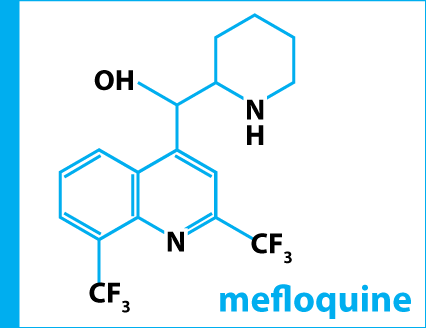On 11th March 2012, “mild-mannered” Staff Sgt Robert Bales shot and killed 16 Afghan citizens and wounded a further six – in what is now dubbed “The Kandahar massacre.”
Why did this tragic event happen?
He had been drinking alcohol, against army rules in combat zones. He also had reported marital problems. However, his defence attorney claims that neither of these were contributing factors. He was certainly “reluctant” to return to Afghanistan after a previous tour, but apparently held no animosity towards Muslims.
So why raise this awful turn of events in a blog about pharmacovigilance?

Sgt Bales had been taking the anti-malarial, mefloquine hydrochloride. The FDA now requires the drug to carry a warning to doctors and patients about the side effects and possible permanent neurological damage. News reports have suggested that its use could come up during Sgt Bales’ sentencing in August.
Mefloquine was originally developed by the United States Army, and was commercialised as Lariam by Hoffmann La-Roche. The company stopped marketing the drug in the US in 2009 although generic versions are still sold in the country and Lariam is still widely available elsewhere.
According to an FDA MedWatch report, a “boxed warning” has been added to the drug label. The FDA has also revised the patient information dispensed with each prescription to include this information and the possibility that the neurological side effects may persist or become permanent.
The drug is the antimalarial of third choice by the US military. Its known side effects include: dizziness, loss of balance, and ringing in the ears. Effects can occur at any time during drug use, and be permanent. Possible psychiatric side effects include feelings of anxiety and distrust, depression, and hallucinations.
But all drugs have side-effects. It is the role of robust pharmacovigilance processes to detect them and assess the risk they pose to patients. Pharmacovigilance is not about eliminating risk – it is about ensuring the risk:benefit scales are firmly tipped the correct way.
So has pharmacovigilance failed in this case?
Severe side effects requiring hospitalisation are “rare” according to a paper in Malaria Journal, and the incidence of adverse reactions are considered by many to be broadly in line with other anti-malarials. So the answer is probably “no”.
Sgt Bales reportedly intends to plead guilty to the crimes in return for a life sentence. Was mefloquine responsible for turning a man described as mild-mannered by his family into a mass murderer? Was it one of a number of factors in a tragic “perfect storm.” Or is it a convenient scapegoat? Even Sgt Bales himself probably doesn’t know the answer.
We appreciate your interest this blog and would really like to know your views. Is this entry bang on the nail or widely off topic? Please leave any of your questions or comments below. We’ll review and comment regularly.

Blog Author: Dr. P.V. Practice
www.whitehalltraining.com
Whitehall Training provides online training courses developed to meet the learning needs of both the clinical and pharmaceutical sectors. Clients range from clinical research doctors and nurses to international Pharma companies and CROs.
Students develop their skills and earn CPD points with industry-recognised compliance training. Trainers and administrators save time by assigning and managing licences with our easy-to-use admin system.






